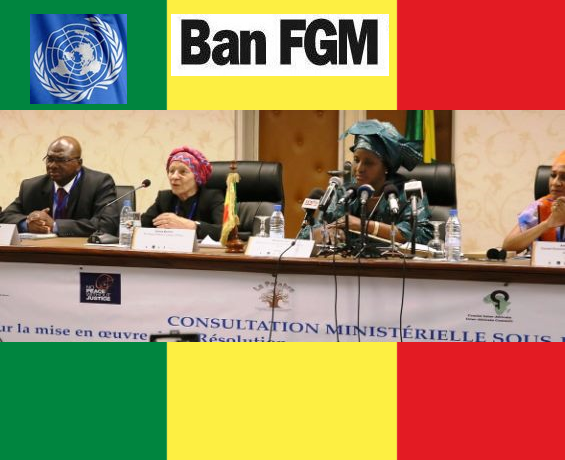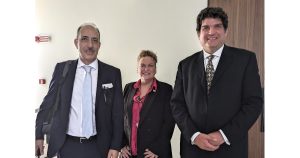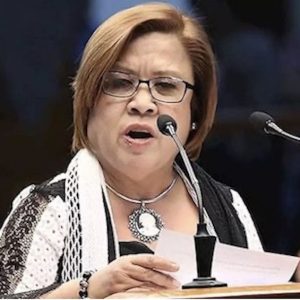Dakar, Senegal, 26-27 April 2016
On 26-27 April 2016, the Ministry of Women, Family and Childhood of Senegal and No Peace Without Justice, in partnership with the Inter-African Committee for Traditional Practices Affecting the Health of Women and Children (IAC) and the local associations COSEPRAT and La Palabre, convened a Sub-Regional Ministerial Consultation in Dakar, Senegal, aimed at fostering the implementation of United Nations General Assembly (UNGA) Resolution 69/150 calling for a worldwide ban on female genital mutilation (FGM).
The Ministerial Consultation, which was held under the high patronage of the Ministry of Women, Family and Childhood of Senegal, was organised with the support of the Italian Ministry of Foreign Affairs and International Cooperation.
Participants included ministers and high-level government representatives, parliamentarians and civil society activists from Senegal and other 14 countries (Benin, Burkina Faso, Côte d’Ivoire, Gambia, Ghana, Guinea, Guinea Bissau, Liberia, Mali, Mauritania, Niger, Nigeria, Sierra Leone, Togo) as well as representatives of UN agencies and other international organisations and diplomatic missions.
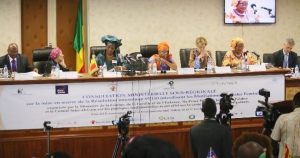
The UNGA Resolution, the adoption of which was spearheaded by African States, is now a fundamental reference point in the worldwide efforts to combat this human rights violation, to protect its victims and to hold perpetrators to account. There is a need for strong, coordinated policies and concrete, practical strategies within and across the justice, health and social action/gender sectors to achieve the resolution’s purpose.
The purpose of the Ministerial Consultation was to facilitate an in-depth policy dialogue among the participants who represent and work within and across these three main sectors to discuss experiences on the political and operational challenges in implementing the national normative frameworks, identify concrete solutions and explore avenues of cooperation with their counterparts in the Sub-region. Ultimately, the Ministerial Consultation was designed to lead to an aspirational outcome document that will engage participants for future actions to bring an end to FGM, showcasing successes in the implementation of the ban and in sectoral and sub-regional collaboration. The outcomes can also provide inspiration and a call to action for other regions where the work to implement the ban against FGM has not yet reached the scope of activity seen in West Africa.
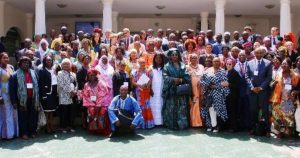
The Conference concluded with the adoption of a Final declaration calling on to ”recognise and promote the fundamental role of legislation and other normative frameworks implementing the prohibition of FGM through the criminalization of this human rights violation”. As highlighted by the Final Declaration, it is essential to ensure that the prohibition of FGM is reflected in all areas and at all levels, including professional codes of conduct, standards of education, training and vocational assessment. The document notes that this should maximize the potential of the ban on FGM by allowing a coordinated and comprehensive response to the needs of victims. Moreover, national authorities should ensure the provision of adequate and integrated services that meet legal as well as medical and psychosocial needs of victims of FGM.
Participants also stressed the need to ensure sufficient budgetary allocations at local, national, sub-regional, regional, and international level, in order to implement the ban on FGM in all its aspects, including prevention, response and evaluation.
The final declaration further calls for the recognition and inclusion of FGM as a form of violence against children in all national and sub-regional laws, agreements, policies and procedures related to the prevention of child abuse; the establishment of a mechanism for coordination and sharing of information between governments, parliaments and civil society in the sub-region in order to harmonize legislation, regulatory frameworks, and national policies to prevent, respond to and enable the evaluation of cross-border practices of FGM.
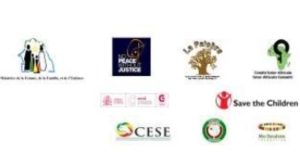
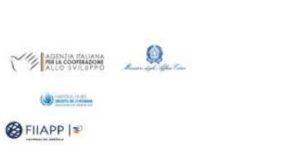
Documentation:
- Final Declaration: English, French
- Parallel Sessions Outcomes: English, French
- Agenda: English, French
- List of participants
- Bios of participants: English, French
- Press release in French
- Ban FGM Campaign
- NPWJ Gender & Human Rights Program activities
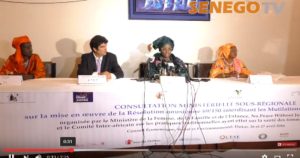
Press coverage:
- Forum ministériel sous-régional au Sénégal pour mettre fin aux MGF, CCTV / Afrique Infos, 29 avril 2016
- Sénégal : Plaidoyer pour la criminalisation des mutilations génitales féminines, APA / Star Africa, 27 avril 2016
- Conférence de Presse (extrait), avec Mariama Sarr (Minister of Women, Family and Childhood, Senegal), Niccolò Figà Talamanca (NPWJ), Mariam Lamizana (CI-AF), Khady Koita (La Palabre), Senego TV, 26 avril 2016
- Ouverture à Dakar d’une conférence sous-régionale contre les mutilations génitales, APA / Star Africa, 26 avril 2016
- Dakar hôte d’une consultation sous-régionale sur l’élimination des mutilations génitales, Ligne Directe (Sénégal), 26 avril 2016
- Seuls huit jugements en 17 ans pour pratique de l’excision au Sénégal (Document), APA / Star Africa, 26 avril 2016
- Faible sanction sur l’excision. Seuls huit jugements en 17 ans, Mouhamadou BA, Rewmi, 27 avril 2016
- Pour rayer l’excision de la carte: Une Consultation ministérielle sous régionale s’ouvre à Dakar, Ieral, 26 avril 2016
- Excision: Seuls 8 cas jugés en 17 ans au Sénégal, Sen360, 26 avril 2016
- Des ministres de la sous-région en consultation sur l’interdiction des Mutilations génitales féminines, Pana – 24 avril 2016
- Consultation Ministérielle Sous Régionale sur la mise en œuvre de la Résolution onusienne 69/150 interdisant les Mutilations Génitales Féminines, Thieydakar, 23 avril 2016
For more information, contact Alvilda Jablonko, Director for Gender and Human Rights, on ajablonko@npwj.org, phone: +32 494 533 915 or Nicola Giovannini, email: ngiovannini@npwj.org, phone: +32 2 548 39 15.

